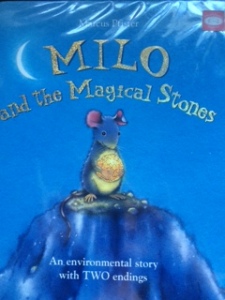This is a question that I am asked very often!

The main people who ask this are parents of children who are born between Jan – June – they are either going to be the youngest in their grade: Still four when they begin the school year or will be the eldest, possibly turning six before they begin school.
So, as a parent, what do you need to consider for your child?
- If your child goes to preschool or daycare ask what they think. They see your child in a different way to a parent so trust their opinion.
- Consider if your child is ready emotionally. Do they cry easily? Do they anger easily? How do they solve problems? Although your child will learn these skills as they grow up, in order for them to be happy socially, they need to be able to get along with other children as much as possible. They need to be able to talk to other adults and deal with small problems without breaking down. Keep in mind that some children will always be sensitive – have a look at this article about overexcitabilities to see if your child fits into this category: http://sengifted.org/archives/articles/overexcitability-and-the-gifted
- There is some new research that is shows there can be harm in sending your child to school early rather than sending them late. BUT in saying that some children will be ready early as perhaps they have an older sibling or perhaps they are socially ready, eager and ready to learn. Check your child is ready – don’t send them because you want them to go or their friends are going. Send them because they are ready.
- Don’t think that sending them early is going to mean they will be able to read within a month. Kindergarten is now a time and a space for children to learn through play. Lessons are not as formal as they used to be and children are encouraged to move, talk and touch things in order to learn. Children need time to learn and by pushing them to know their alphabet or sight words will just turn them away from their ingrained passion to learn.
- In saying that – read to your child. Encourage them to sound out words but do it in a fun way. No threats! Yes, reading is a very important skill and once we learn to read we can do so many things BUT pushing your child can teach them the incorrect skills which can do a lot more harm than good.
I once taught a kindergarten girl who was an excellent reader but had no comprehension skills. This was causing a very big issue as she was slowly dropping in her self esteem – she thought she could read and had been praised but now there was something related to reading that she couldn’t do. She had to go back to basics which was very difficult for her.
- Talk to the school. Ask what they think and allow them to meet your child. They may have open sessions where they can watch your child interact with other children around them and also how they approach different activities.
- Trust yourself. You know your child better than anyone else. Trust that you know what is best for your child. You have raised them to be the best person they can be so far and I am sure you can continue to. Trust that you know what your child can do.
- Keep reading those picture books! Enlighten your child to the world around them. Let them see words, play with vocabulary and have fun looking at pictures.


